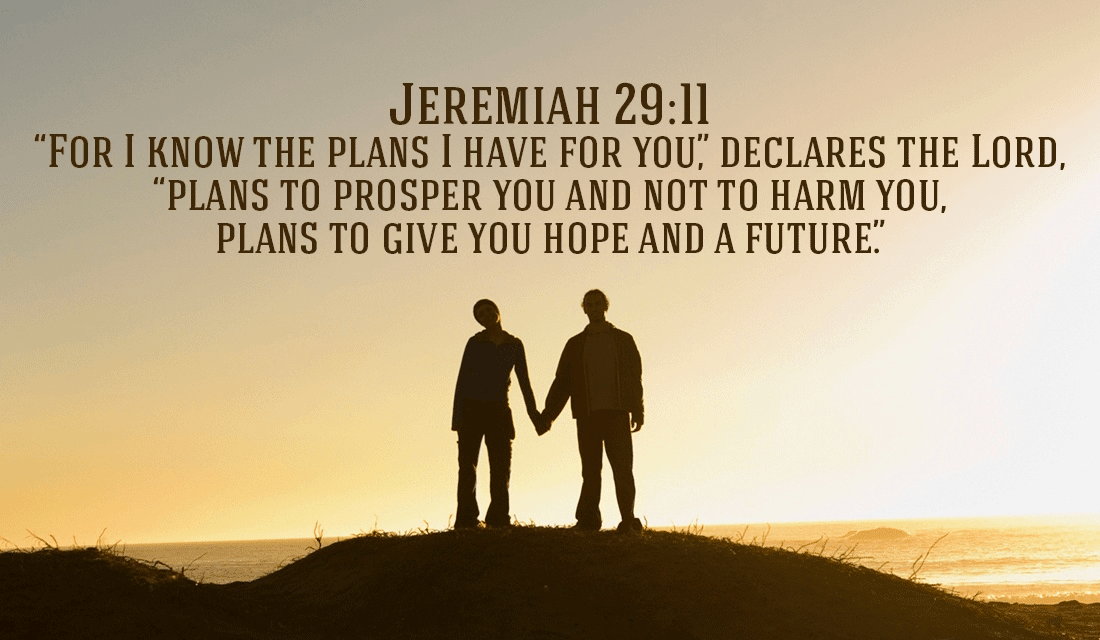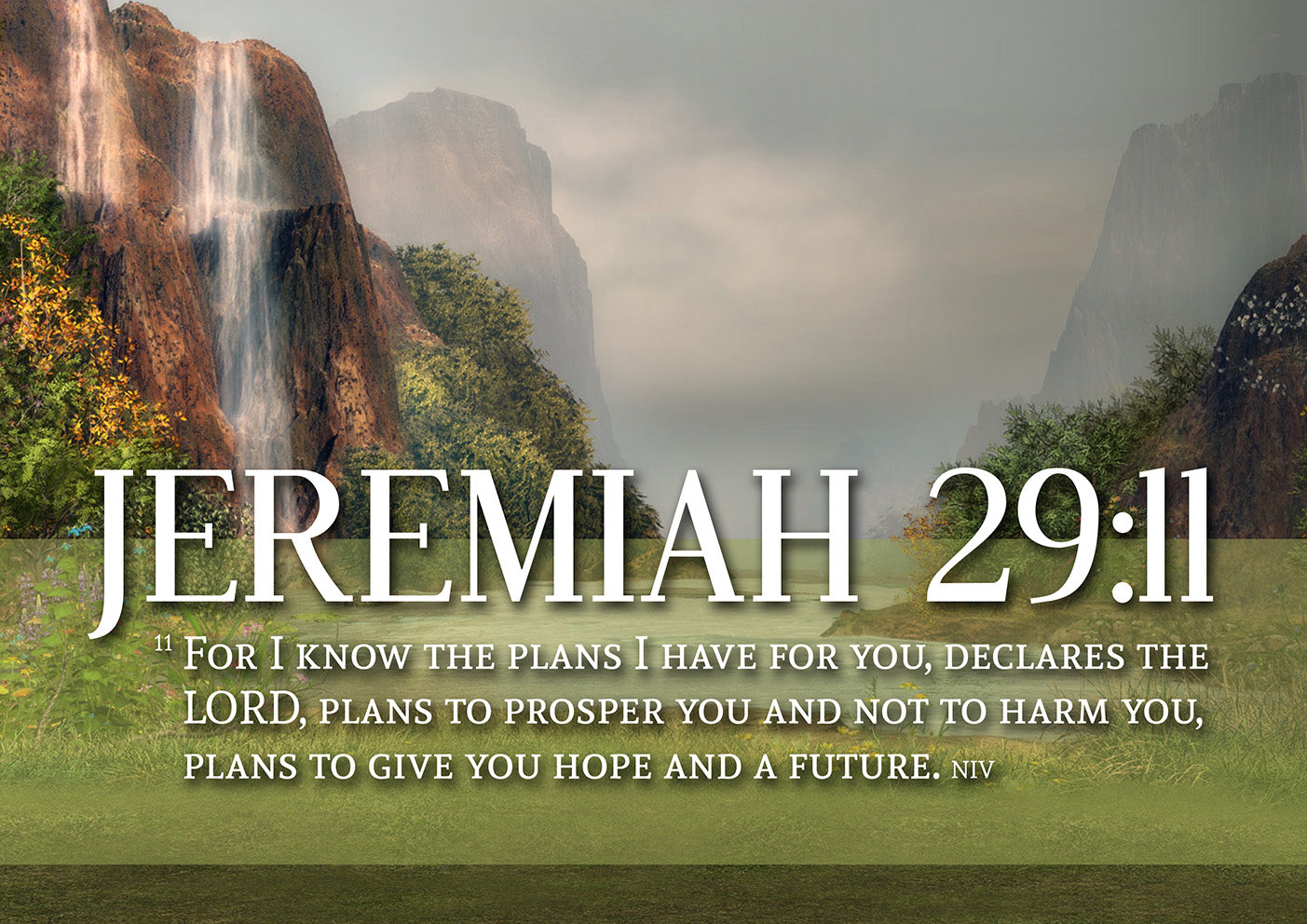


In some ways, this reminds us of Jesus’s words in Matthew 16:18: “I will build my church, and the gates of hell shall not prevail against it” (ESV). “Our” is a key element here it is not just about you but about all of God’s people. In addition, these words tell us that even when things in this world do not look so good for us or for God’s people, we know that God has a plan for His glory and ultimately for our good. This context means that these words should point us to the future that we have that is made possible through Christ. This covenant is fulfilled in Jesus, who at the Last Supper talked about the new covenant in his blood. God told the people through Jeremiah that destruction would come, but also that the people would be restored and that God would make a new covenant, one that is not like the old covenant as the law would be written on their hearts. Verse 11 comes after verse 10, which speaks about the fact that God would bring them back after 70 years in exile this was for a season, not forever. Yes, they are going into exile, but this plan of God for them (the “you” in 29:11 is plural, not singular it is not to a person but to a people) is actually for good and not for harm they have a hope and a future, as God is not done. These words, however, show that there is hope. These people were discouraged and thought that God had forgotten them, that there was no hope for them.

These words in chapter 29 came in a letter sent to the Jewish people from Jeremiah saying that Babylon had been taken out of the land of Judah and into their own cities. They liked prophets who said everything was always going to be awesome and that there would be peace in the land they did not like Jeremiah’s message that the end could be coming or pointing to their shortcomings. A major reason for opposition to Jerusalem, as well as the judgment on the people, is the complacency of God’s people as they believed that simply because they had the temple, nothing bad would happen to them (forgetting God’s promises in the covenant with the people of Israel that if they obeyed, they would stay in the land and prosper, but if they disobeyed, they would be scattered among the nations). Jeremiah is often known as “the weeping prophet,” as the book highlights that the city of Jerusalem (the capital city of the nation of Judah, where the temple of God was) will be destroyed by the Babylonians and also the opposition that Jeremiah encounters among his own people as he delivers the news. The first thing to remember about this verse is that it is found in the book of Jeremiah, one of the prophets of the Old Testament. When we dig into its context, both the historical context and the literary context, I think it shows us even more truths than we might realize at first glance. The reference alone might cause the words to enter into your mind, but in case you are not familiar with it, here it is in the English Standard Version (ESV) translation: “For I know the plans I have for you, declares the Lord, plans for welfare and not for evil, to give you a future and a hope.” The New International Version (NIV) translation, which I memorized as a youth, puts it a little differently: “‘For I know the plans I have for you,’ declares the Lord, ‘plans to prosper you and not to harm you, plans to give you hope and a future.’” It is often used in settings like graduations or other occasions where we need encouragement about the future, telling us that God has a plan and that His plan for us is good. In my experience, Jeremiah 29:11 is one of the most cited and quoted Bible verses among Christians. For I know the thoughts that I think toward you, says the LORD, thoughts of peace and not of evil, to give you a future and a hope.įor I know the thoughts that I think toward you, saith the LORD, thoughts of peace, and not of evil, to give you an expected end.įor I know the thoughts that I think toward you, saith Jehovah, thoughts of peace, and not of evil, to give you hope in your latter end.įor I know the plans I have for you, declares the LORD, plans to prosper you and not to harm you, to give you a future and a hope.įor I know the thoughts that I think towards you, saith the Lord, thoughts of peace, and not of affliction, to give you an end and patience.įor I know the thoughts that I think toward you, saith the LORD, thoughts of peace, and not of evil, to give you hope in your latter end.įor I know the thoughts that I think toward you, says Yahweh, thoughts of peace, and not of evil, to give you hope and a future.įor I have known the thoughts that I am thinking towards you - an affirmation of Jehovah thoughts of peace, and not of evil, to give to you posterity and hope.


 0 kommentar(er)
0 kommentar(er)
